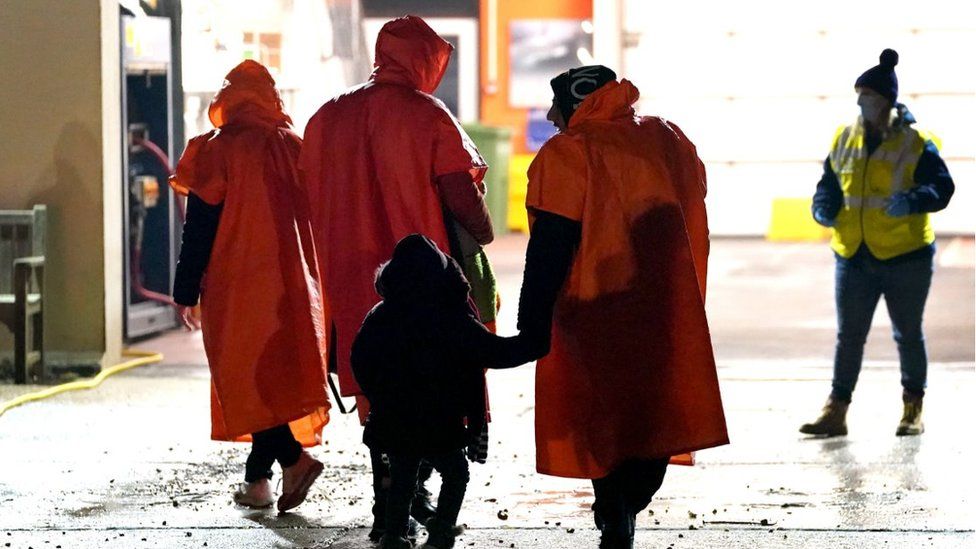ARTICLE AD BOX
 Image source, PA Media
Image source, PA Media
By Leila Nathoo
BBC political correspondent
The cost of detaining and deporting people arriving in the UK in small boats under planned new legislation could hit £6bn over the next two years, internal government projections say.
The Illegal Migration Bill is currently going through Parliament.
The BBC understands the Home Office estimates it will have to spend between £3bn and £6bn on detention facilities, and ongoing accommodation and removals.
It gives ministers the power to remove anyone arriving in the UK illegally.
These migrants would be barred from claiming asylum here.
The government insists it needs to act as record numbers of people are arriving in small boats and the cost of housing asylum seekers in hotels is running at almost £7m a day.
Prime Minister Rishi Sunak has made tackling the issue one of his key priorities - but the bill has encountered opposition from within the Conservative party and has been strongly criticised in the House of Lords, where it is currently being debated.
Ministers have so far not revealed any costs linked to the bill or given any indication of the scale of investment it requires.
But one senior government source described it as one of the main pressures on public spending.
The Treasury is backing the policy, but there is concern among insiders that costs associated with the controversial bill are escalating.
Home Office sources acknowledged that the bill's implementation would be expensive and complex, with one admitting that getting the whole process working would be a "major logistical challenge".
More than 45,000 people crossed the English Channel last year on small boats - currently the UK has the capacity to detain around 2,000 people for immigration purposes and work has begun to significantly scale this up.
Whitehall sources stressed there were many variables and the purpose of the bill was also to act as a deterrent.
The Home Office hopes the number of people being detained, and therefore the costs, will come down over time, but Treasury insiders worry that the deterrent effect has not been reliably modelled.
One Home Office source close to the legislation admitted the deterrent effect was an "unknown factor" that could not be predicted.
Jon Featonby, chief policy analyst at the Refugee Council, said: "The Home Office is clearly aware that so-called deterrence measures simply don't work, and it is preparing to detain thousands of desperate people who will end up on our shores in search of protection. Until refugees fleeing violence and persecution are given a safe pathway to seek asylum in our country, they will continue to risk their lives to get here.
"Instead of moving forward with this hugely expensive and unworkable crackdown on refugees seeking safety in the UK, the government should be focusing on creating a system that protects the right to claim asylum and that prioritises both compassion and control."
The government says it will publish its economic impact assessment of the bill in due course.
Under the proposals in the Illegal Migration Bill, anyone who arrives in the UK on an unauthorised boat across the English Channel would be detained before being removed within weeks, either to their home country or another country deemed safe.
A plan to send some asylum seekers to Rwanda to make their claims is still facing legal challenges in the courts.
If the Illegal Migration Bill becomes law, it will apply retrospectively to anyone who arrived in the UK illegally after 7 March 2023.
In the short term, there would still be a legacy system in place in parallel, dealing with the claims of those who arrived on small boats before that date.
The Home Office says the annual cost of the current asylum system has reached £3bn a year.
A government spokesperson said: "Our Illegal Migration Bill will help to stop the boats by making sure people smugglers and illegal migrants understand that coming to the UK illegally will result in detention and swift removal - only then will they be deterred from making these dangerous journeys in the first place."

 1 year ago
41
1 year ago
41








 English (US)
English (US)